The marketing landscape is evolving at lightning speed, and AI tools for marketing automation are the driving force behind this revolution. By 2026, automation isn’t just about saving time — it’s about delivering precision, personalization, and performance.
From predictive analytics to hyper-personalized campaigns, AI-driven automation tools help marketers move from “guesswork” to “growth work.” Whether you’re a solopreneur or a global enterprise, AI can speed up everything, from lead nurturing and campaign management to social media scheduling and customer engagement.
In this article, we’ll explore the top 10 AI tools for marketing automation in 2026, analysing their key features, pricing, pros and cons, and how they’re reshaping digital marketing.
10 Best AI Tools for Marketing Automation in 2026
1. HubSpot Marketing Hub
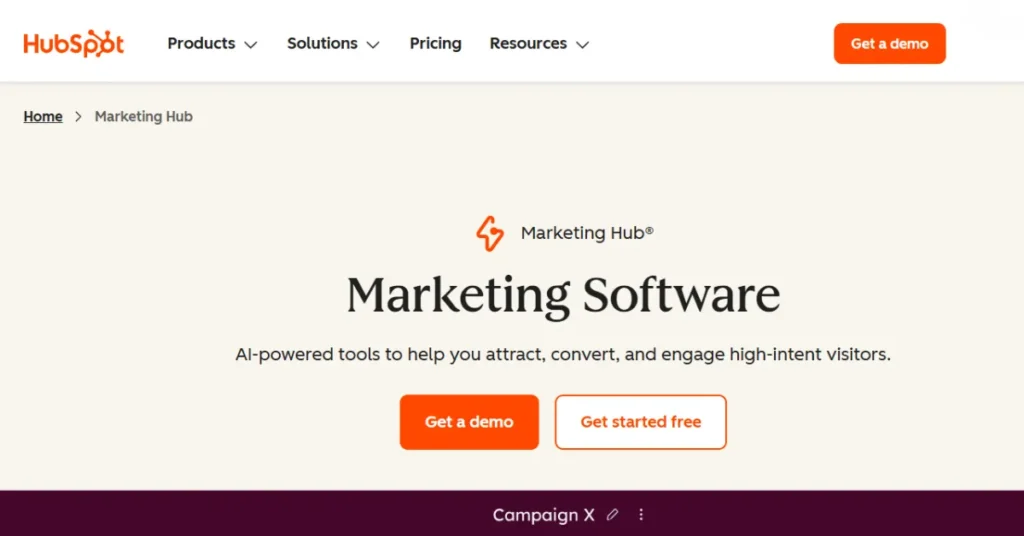
It is perfect for an All-in-one marketing automation AI Tool for businesses of any size. HubSpot has integrated AI deeply into its ecosystem, offering automated content recommendations, smart workflows, and predictive lead scoring.
Main Features
- Predictive email automation, smart workflows, lead scoring.
- AI-content generation (blog posts, meta descriptions) via built-in tools.
- Deep CRM integration and multi-channel campaign orchestration.
Advantages
- One unified platform: marketing, sales, service, all connected — reduces silos.
- Strong AI support even in smaller plans: content generation, workflow automation.
- Deep analytics and data-driven insights: predictive lead scoring, content optimisation.
Disadvantages
- Cost can scale rapidly for enterprise-level features.
- While breadth is strong, some advanced niche features might be less deep than specialised tools.
- Requires clean data and clear workflows to get full value — automation without structure yields poor results.
2. ActiveCampaign (AI-Enhanced)
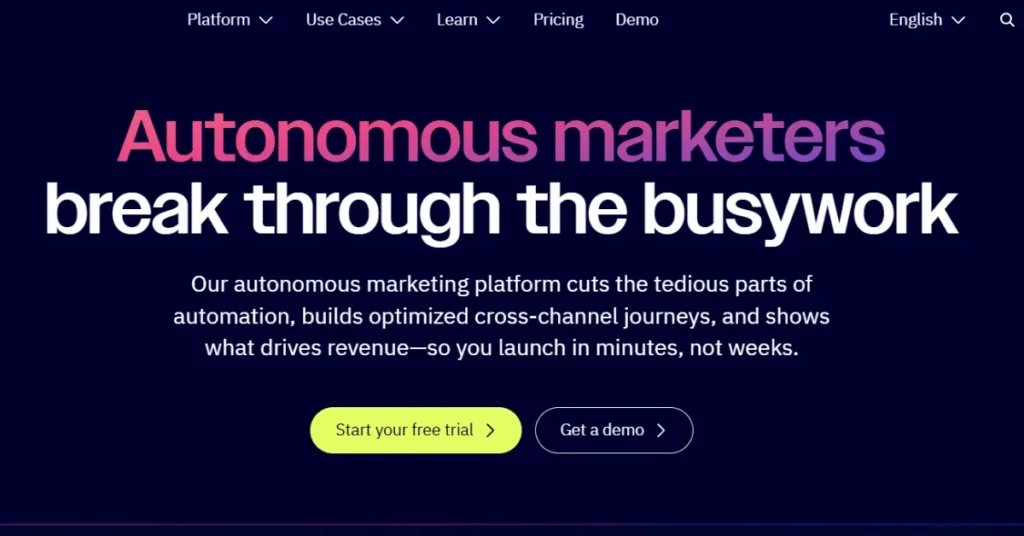
It is perfect for Email and customer experience automation. ActiveCampaign uses advanced AI to analyse customer intent and send hyper-personalised messages across touchpoints. It offers dynamic content and real-time workflow adjustments.
Main Features
- Predictive sending & AI-based segmentation.
- CRM & sales automation built in.
- Dynamic content personalisation.
Advantages
- Very strong on email and messaging, which remains a cornerstone for many businesses.
- Good value for smaller-to-mid businesses seeking intelligent automation without a full enterprise price tag.
- Excellent for customer journey mapping and experience automation.
Disadvantages
- It may lack some of the more extensive multi-channel features (social, content, ads) found in all-in-one platforms.
- A learning curve for setting up sophisticated workflows.
- As behaviour modelling grows, data quality/internal team maturity becomes critical.
3. Jasper (Campaign AI)
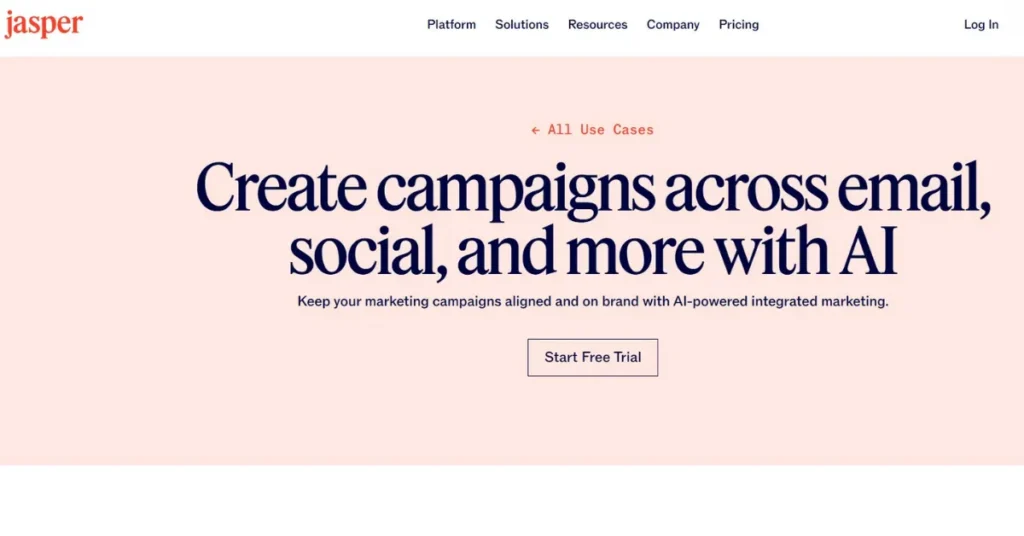
It is perfect for AI-powered content and marketing campaign creation. Jasper has evolved from a writing assistant to a full-fledged AI marketing automation suite. It helps create marketing copy, visuals, campaign assets, and integrates with CRMs/ad managers.
Main Features
- Automated content pipeline: idea > draft > publish.
- Multi-channel asset generation: email, ads, social media, landing pages.
- Brand voice and context layer to maintain consistency across assets.
Advantages
- Huge time-saver for content creation at scale: marketers report much higher output.
- Useful for multi-channel campaigns, not just emails — integrates assets across mediums.
- Strong brand voice support and context management for consistency.
Disadvantages
- Outputs still often need human proofreading and tone adjustment.
- Cost can add up when scaling many users/brands.
- It is more focused on content/creative automation than full lifecycle marketing automation (e.g., advanced CRM workflows).
4. Marketo Engage (by Adobe)
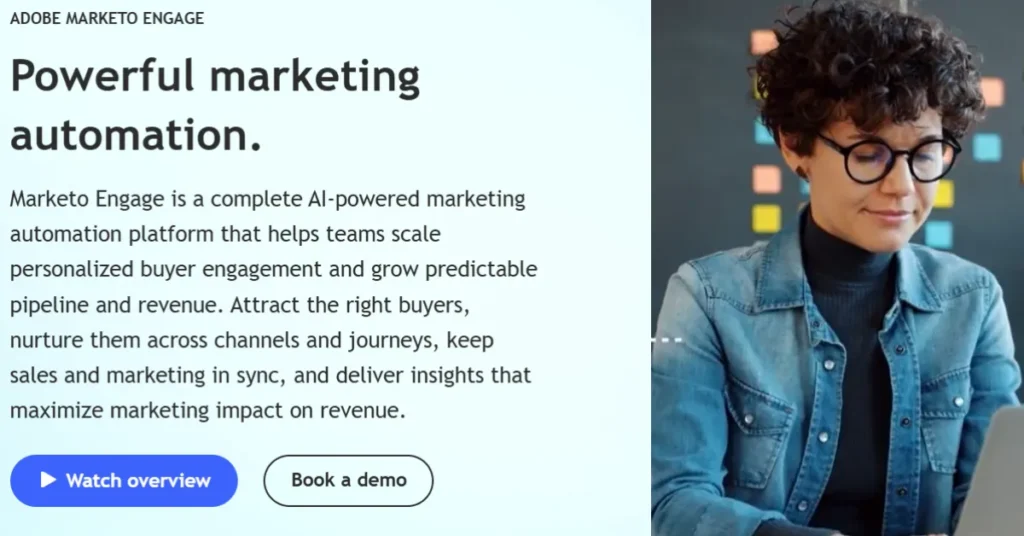
It is perfect for Enterprise-grade marketing teams. Marketo Engage excels in lead management, account-based marketing (ABM), and predictive audience modelling. It’s built for large organisations with complex pipelines.
Main Features
- Advanced lead scoring and lifecycle modelling.
- Multi-channel campaign automation (email, web, ads).
- Rich integrations with CRMs and enterprise data systems.
Advantages
- Very powerful feature set tailored to large, complex operations.
- It is well-suited for B2B and ABM scenarios, where marketing automation is tightly integrated with sales and customer success.
- Mature platform with strong vendor backing (Adobe).
Disadvantages
- High cost and implementation complexity, which may be overkill for smaller organisations.
- Requires dedicated resources/skills to manage and maintain.
- It may be less agile or accessible compared to lighter tools for fast-moving teams.
5. Zoho Marketing Plus (with AI)
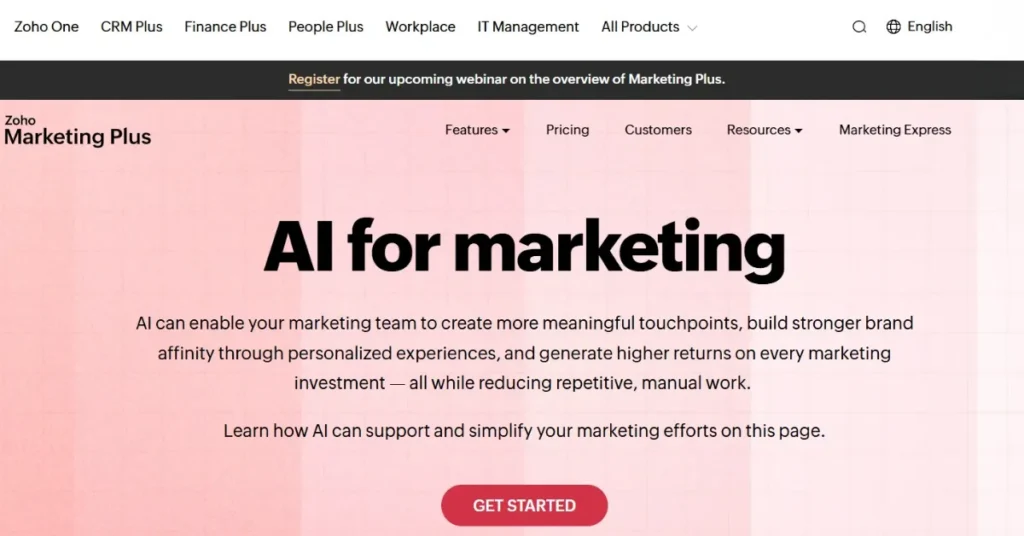
It is perfect for SMEs seeking affordable all-in-one automation. Zoho Marketing Plus offers social media, email, campaign automation, and analytics, enhanced by its AI assistant “Zia”.
Main Features
- AI-assisted content optimisation, campaign suggestions.
- Automated segmentation, unified analytics across channels.
- Social scheduler + email + web engagement in one place.
Advantages
- Strong value proposition for small and medium businesses.
- Good integration across marketing channels for the price.
- Ease of use for teams with fewer resources.
Disadvantages
- May lack depth in features compared to top enterprise tools.
- Interface and integration experience may not be as polished as premium platforms.
- Support and advanced customisation might not be as robust.
6. Salesforce Marketing Cloud (Powered by Einstein AI)
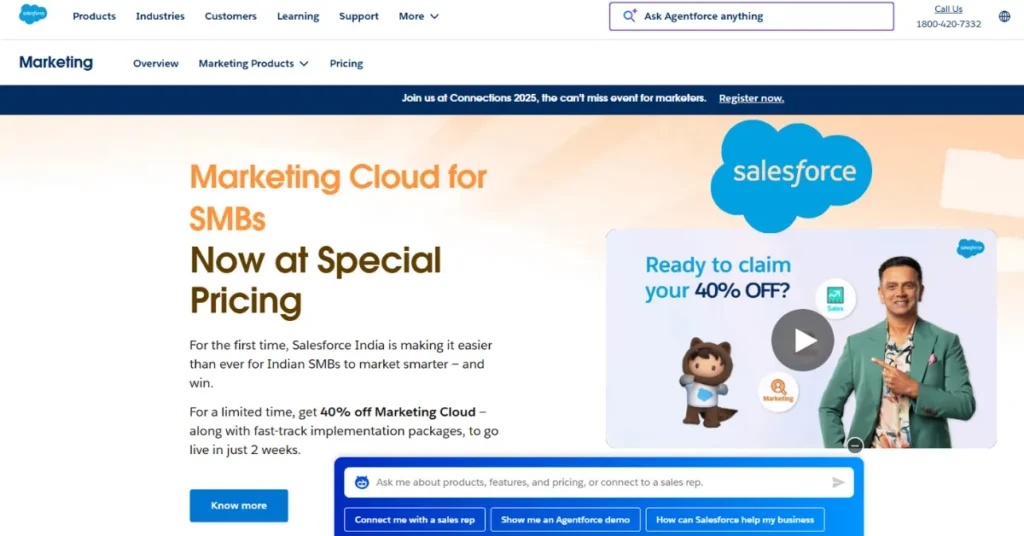
It is perfect for Personalised enterprise marketing automation. Salesforce, with its Einstein AI layer, provides predictive analytics, cross-channel journey orchestration, and highly personalised campaigns.
Main Features
- Predictive scoring, next-best-action recommendations.
- Orchestration across email, mobile, web, and advertising.
- Deep integrations with CRM and customer data.
Advantages
- Extremely strong for enterprises needing precision, scale, and advanced analytics.
- Customisable journeys, advanced segmentation, and leveraged data.
Disadvantages
- Very expensive and often requires professional services.
- Complexity means a steep learning curve and resource investment.
- Smaller businesses may find it too heavy and slow to deploy.
7. Mailchimp (with AI enhancements)
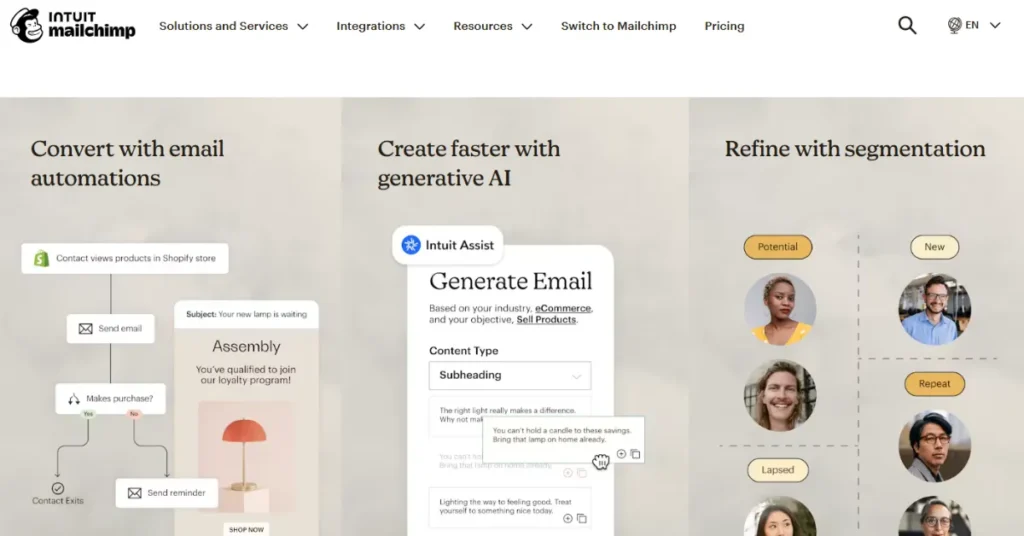
It is perfect for SMBs and startups with an email marketing focus. Mailchimp’s 2026 version includes AI-driven content suggestions, predictive analytics, customer journey automation, and more than just email.
Main Features
- AI subject-line generator, predictive segmentation.
- Automated social posting and marketing workflows.
- Easy-to-use interface for teams without dedicated marketing ops.
Advantages
- Very accessible price point and user-friendly.
- Good starting point for businesses just getting into automation.
- Solid email foundation with added automation capabilities.
Disadvantages
- As businesses scale, features may become limiting compared to enterprise tools.
- Less depth in advanced automation features, multi-channel orchestration, and analytics.
- Customisation and advanced integrations may require workarounds.
8. Drift AI
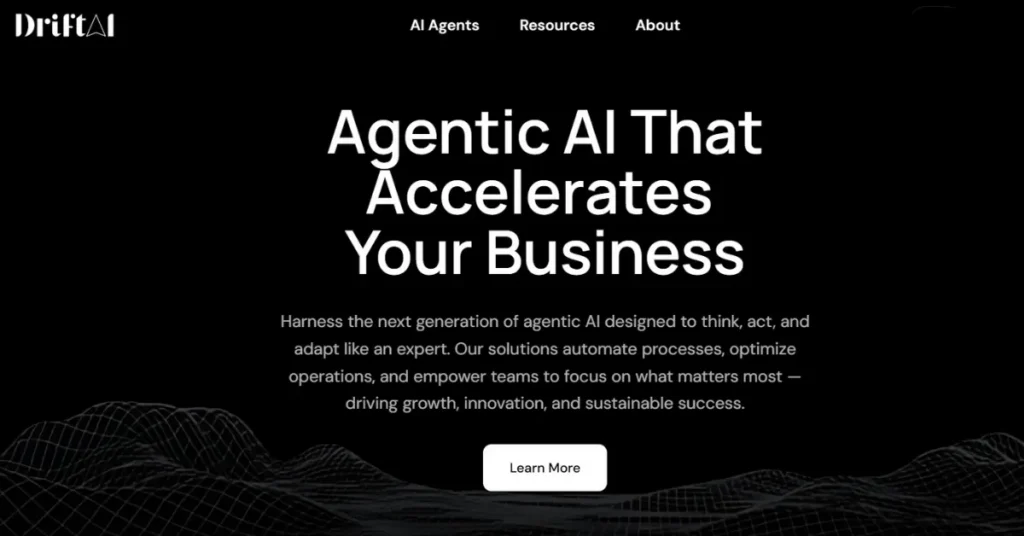
It is perfect for Conversational marketing automation. Drift uses chatbots, conversational AI, and intent detection to automate lead generation and customer engagement in real-time.
Main Features
- AI-powered chat & email automation.
- Intent detection, real-time lead routing, and conversation analytics.
Advantages
- Excellent at capturing leads and engaging visitors in real time.
- Bridges marketing-sales handoff by routing hot leads automatically.
- Enhances customer experience via automated but personalised conversations.
Disadvantages
- Focus is narrower (conversational rather than full campaign lifecycle).
- Chatbots still require careful tuning for tone, accuracy, and brand voice.
- May require integration/tech work to connect with the full marketing stack.
9. Semrush AI Automation Suite
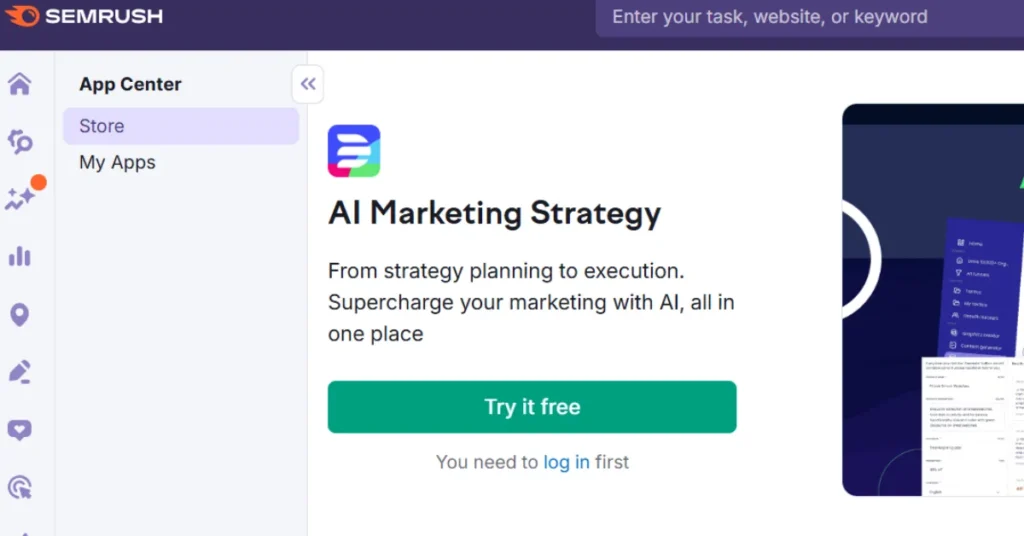
It is perfect for Data-driven marketing campaigns. Semrush’s AI tools now automate SEO audits, keyword planning, content marketing workflows, and campaign orchestration across channels.
Main Features
- AI keyword clustering, content automation & optimisation.
- Ad campaign automation and ROI tracking.
- Competitor intelligence plus marketing workflow management.
Advantages
- Very strong if your marketing has a big SEO, content, and ads component.
- Rich data insights help drive smarter decisions rather than just automating tasks.
- Good for marketers who love the “science” side of marketing.
Disadvantages
- Not as full-featured in pure workflow automation across email/social/CRM compared to full marketing automation platforms.
- May require additional tools to cover all channels and stages of the funnel.
- Steep learning curve for new users who aren’t comfortable with data.
10. Customer.io AI
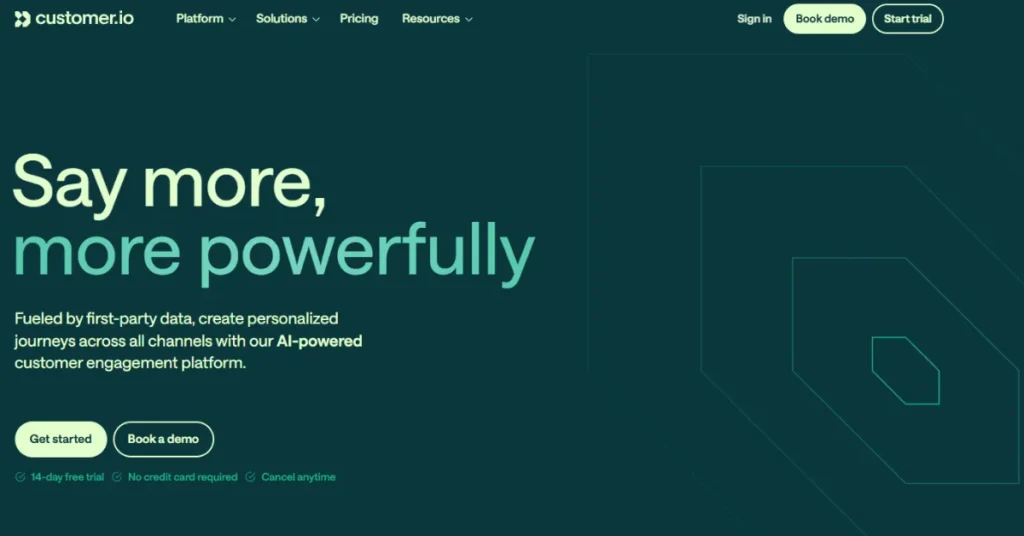
It is perfect for SaaS and e-Commerce customer lifecycle automation. Customer.io uses behavioural and transactional data to trigger automated campaigns, segment users, and personalise messaging in real-time.
Main Features
- Behaviour-based triggers, lifecycle workflows, churn prediction.
- Real-time personalisation for messaging (email, in-app, push)
Advantages
- Excellent for finely-tuned lifecycle marketing (onboarding, retention, churn).
- Strong for SaaS/e-commerce businesses with rich event data.
- Real-time automation enables timely and relevant interactions.
Disadvantages
- May require robust data infrastructure and event tracking to unlock full value.
- Less suited for enterprises requiring heavy multi-channel orchestration across legacy systems.
- The richer the data, the more setup and maintenance required.
How to choose the best tool?
- Clean and accurate data is a must because automation doesn’t replace garbage-in, garbage-out.
- Define clear workflows and goals before you scale automation.
- Don’t let automation replace human creativity and strategy; it should improve it.
- Monitor, test, and refine continuously because these AI tools help, but optimal results still require human oversight.
As we look toward 2026, the marketplace of AI tools for marketing automation is richer and more specialised than ever.
You can also use some of these AI tools for Account-Based Marketing (ABM) for a B2B strategy.
Choosing the right marketing Automation AI tool depends totally on your business size, data maturity, channel mix, and team capabilities.
- If you’re seeking an all-in-one platform, HubSpot, Zoho, or Salesforce may be “safe bets”.
- If your priority is content generation and creative scale, Jasper is the best choice.
- For conversational lead capture, Drift is perfect.
- For SEO/data-driven campaigns, Semrush looks best.
- For lifecycle automation in SaaS/e-commerce, Customer.io is strong.
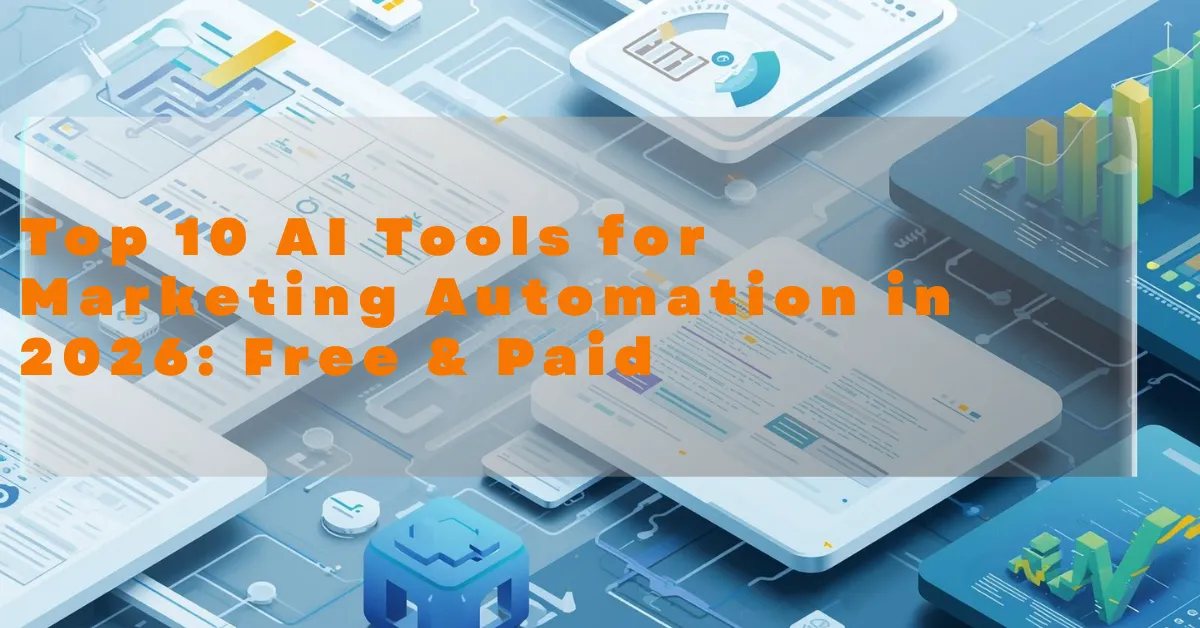
rhfowjtkqjzlfdpfdjgmstpukxtdnp